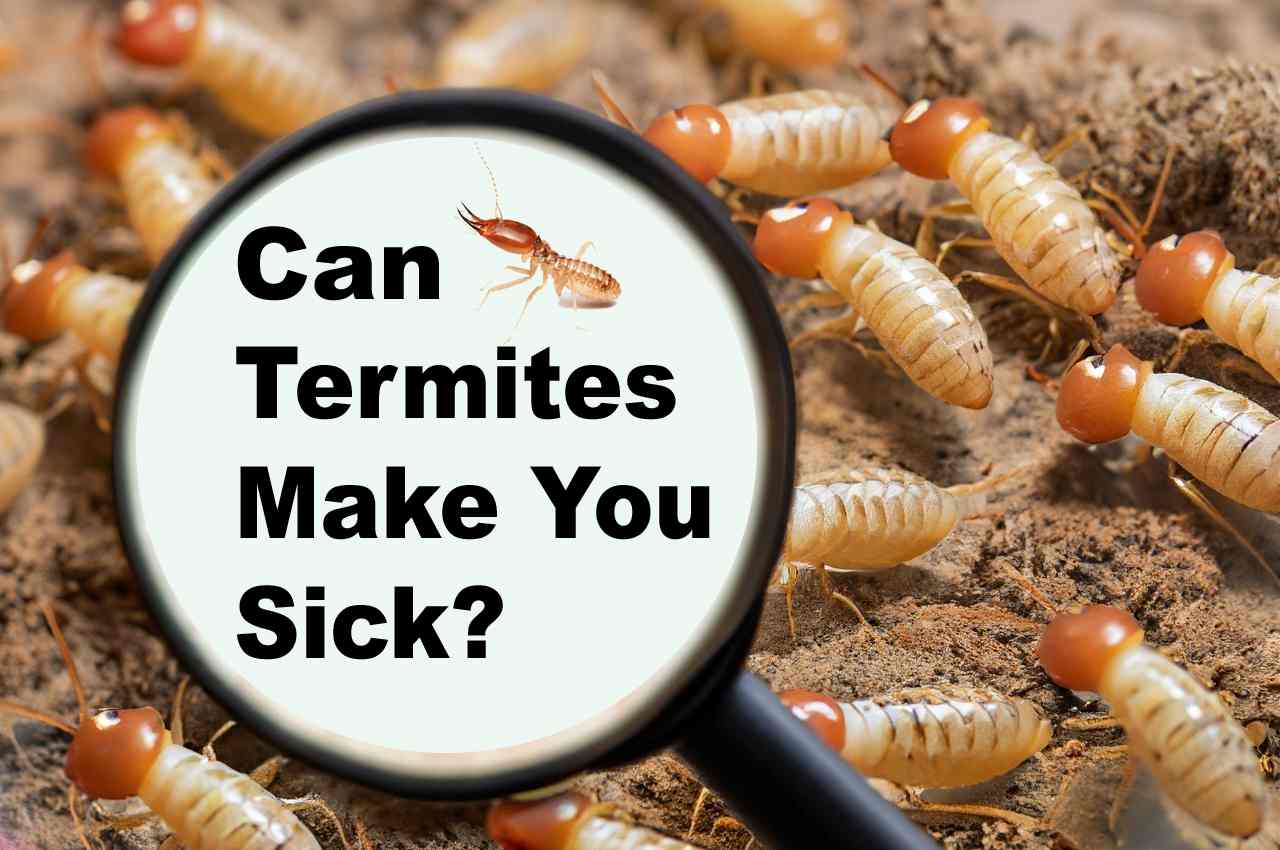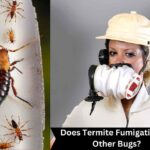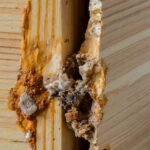Can Termites Make You Sick? The Facts About Termites and Their Impact on Well-being. Termites are frequently the most devastating hidden house invaders. Beyond their reputation for destroying wooden buildings, many wonder whether termites may make you ill. Termites do not directly spread illnesses like other pests, but their presence might indirectly damage human health. This article will discuss termite health issues and how they may affect residents.
If you discover termites in your home, your first reaction is probably disgust, anger or fear over property damage. But may your health also be at risk from these invading insects without you being aware of it? This in-depth tutorial will cover the possibility that termites might cause illness, probable symptoms, and self-protection measures.
Can termites make you sick?
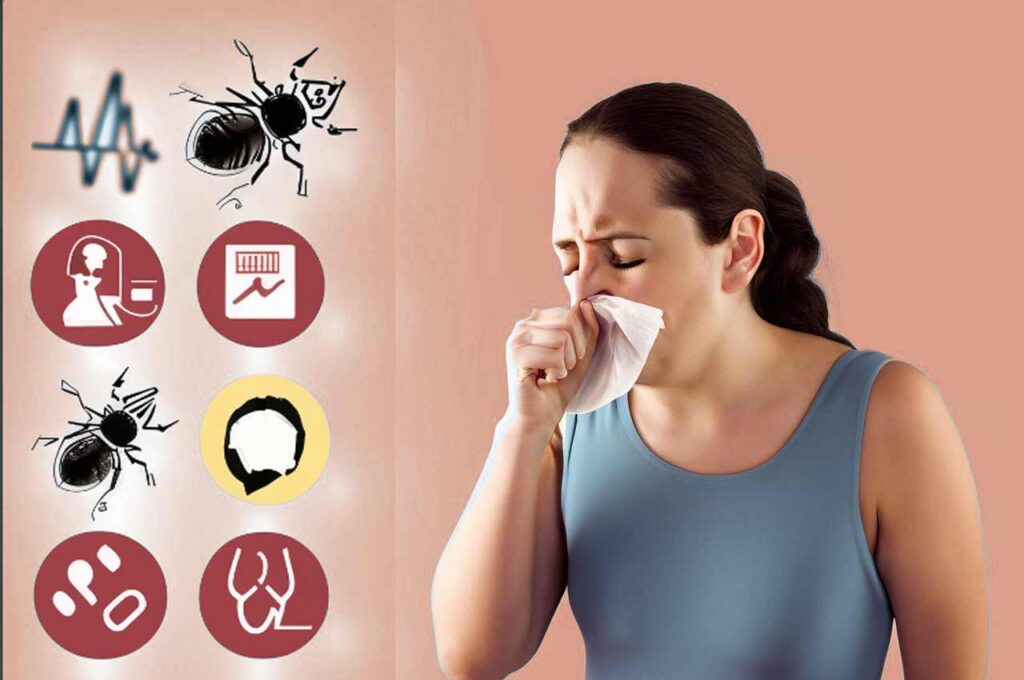
Termites themselves do not possess the capability to make humans sick, as they do not transmit diseases. Termite infestations, however, may indirectly cause certain health problems. For instance, some people may have allergic responses to termite saliva or droppings, leading to symptoms including sneezing, coughing, and in extreme circumstances, life-threatening disorders like anaphylaxis. Termite infestations may worsen asthma attacks in those who already have them.
Additionally, termites leave behind a sawdust-like substance called frass after eating wood, which may include mold spores that impair indoor air quality and lead to respiratory issues. Additionally, homeowners worried about property destruction may experience worry and anxiety due to the presence of termites. Professional pest management action is essential to avoid any possible health effects caused by termite infestations and to allay these worries.
Allergies and Asthma: Termite Allergens Can Trigger Reactions
Exposure to termites and their feces may cause allergic reactions or asthma crises in those with sensitivity. Termites create allergens, which they release into the atmosphere and leave behind in their waste and nesting materials. Inhaling these particles may lead to the following symptoms in persons with allergies or asthma:
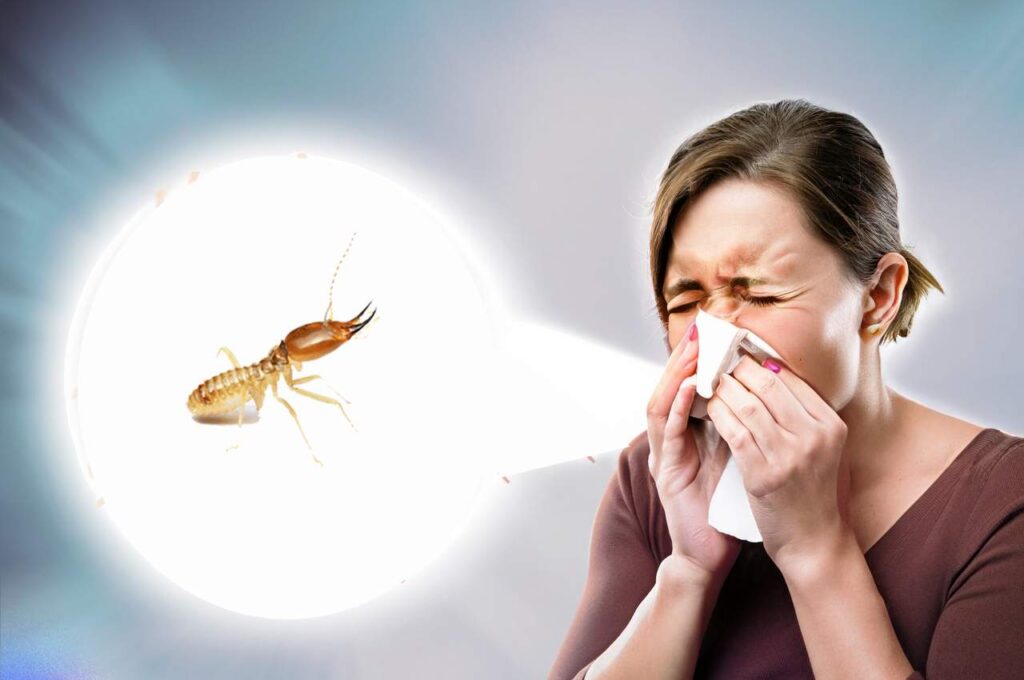
| Type | Symptoms |
|---|---|
| Respiratory | Wheezing, coughing, chest tightness, difficulty breathing |
| Nasal | Runny nose, congestion, sneezing |
| Ocular | Watery, itchy, red eyes |
| Dermatological | Hives, rashes, itching |
| Severe | Anaphylaxis, asthma attacks |
Take care while disturbing termite nests or feces during treatment if you already have respiratory conditions or allergies. Put on a mask, open the windows, and wash any exposed skin thereafter. Take note of any recurrences of your symptoms.
Musty Air: Mold and VOCs Lurk Where Termites Thrive
Termites may cause poor air quality in addition to causing allergies. They often indicate excess moisture, which is excellent for harmful mold growth. Additionally, the VOCs that are released by their excretions might irritate the respiratory system.
Termite-related indicators of poor indoor air quality include:
- Potent musty and earthy odors
- Any lingering dust or haze
- Migraine, tiredness, and headaches
- Sinus and throat congestion
- Difficult breathing
| Issue | Symptoms |
|---|---|
| Mold growth | Musty smells, lingering dust/fog, headaches, fatigue |
| VOCs | Earthy odors, sore throat, congestion, labored breathing |
| Structural damage | Weak infrastructure, leaks, buckling, collapsed areas |
Improve ventilation, deal with the termite issue, and, if necessary, enlist the help of air quality specialists. Live without continuing air pollution.
Wood Decay: Structural Damage May Put Safety at Risk
Although termite-related structural damage may not directly affect health, it presents safety risks in the house. Termites severely contaminate beams, floors, walls, and other structures as they consume wood. This degradation may result in:
- Weakened roofs at risk of collapse
- Decks and staircases without supports that are prone to buckling
- Plumbing leaks caused by damaged walls
- Sagging floors that trip residents
- Electrical shorts from gnawed wiring
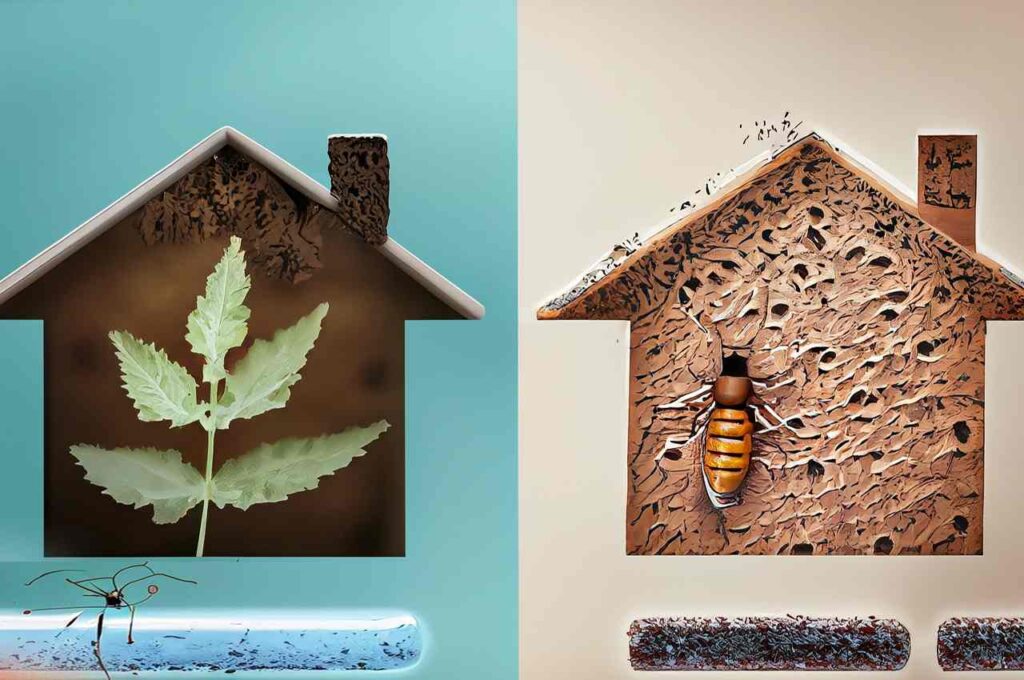
Don’t disregard significant termite damage. Before your home’s structural integrity is compromised, take care of bugs. Your physical security is in jeopardy.
Anxiety and stress are also caused by pests.
Simply having termites may have a negative impact on your mental health, even if they don’t immediately hurt your body. Stress and concern about property value loss, financial obligations, house repairs, and managing treatment are often brought on by the finding.
Termites may cause considerable distress for those who suffer from anxiety disorders or OCD. Possible responses include:
- Lack of sleep and altered appetite
- Inability to concentrate at work or home
- Constant ruminating and worrying
- Anxiety about the pests
- Anger towards previous owners if relevant
As quickly as possible, get expert advice to help fix the issue and calm your mind. Don’t suffer from termites.
Bites and Stings: Direct Contact Brings Pain and Itching
Even though it’s rare, certain huge termite species may cause excruciating bites or stings if they get in close proximity to your skin. For protection, both soldiers and queens have piercingly sharp mandibles. These signs include:
| Danger | Symptoms |
|---|---|
| Pain | Burning, stinging, tenderness |
| Itching | Inflamed, irritated skin |
| Infection | Pus, redness, heat, swelling |
| Contamination | Nausea, fever, fatigue |
Although termites don’t really transmit illnesses via their bites, the open wound may do so. To avoid re-infection, properly clean any bites.
Contaminated Food: Droppings and Spoiled Crops
You may become sick by consuming food that has been tainted by termite feces or rotting. Termites are known to infest crops, cabinets, and pantry contents. Symptoms like as: may result from consuming their fecal pellets or damaged vegetables.
- Diarrhea, vomiting, and nausea
- Pain and cramping in the abdomen
- Headaches and fatigue
- Chills, fever, and bodily aches
Termite-affected food should be thoroughly inspected, and anything showing signs of contamination should be discarded. After treatment, clean the shelves and containers to get rid of the droppings.
How to Avoid Health Problems Caused by Termites?
Here are some recommendations to safeguard yourself and your family now that you are aware of the possible health effects of termites:
- To reduce chemical risks, have a pro address infestations using integrated pest control.
- Use plastic sheeting to isolate the infected area while undergoing therapy. When applicable, put on the required PPE.
- Provide fresh air circulation by opening windows and utilizing fans.
- Use dehumidifiers and HEPA air filters to enhance indoor air quality.
- After treatment, seal up access sites to prevent re-infestation by termites.
- Keep an eye on the moisture content of wood and get rid of extra water sources.
Keep an eye out for termites to prevent them from endangering the security of your house and the health of your family. Do not put up with these dangerous bugs.
When to Seek Medical Care for Termite-Related Symptoms?
Once the infestation has been eradicated, the majority of allergy-like termite problems go away on their own. However, in the event that you do experience:
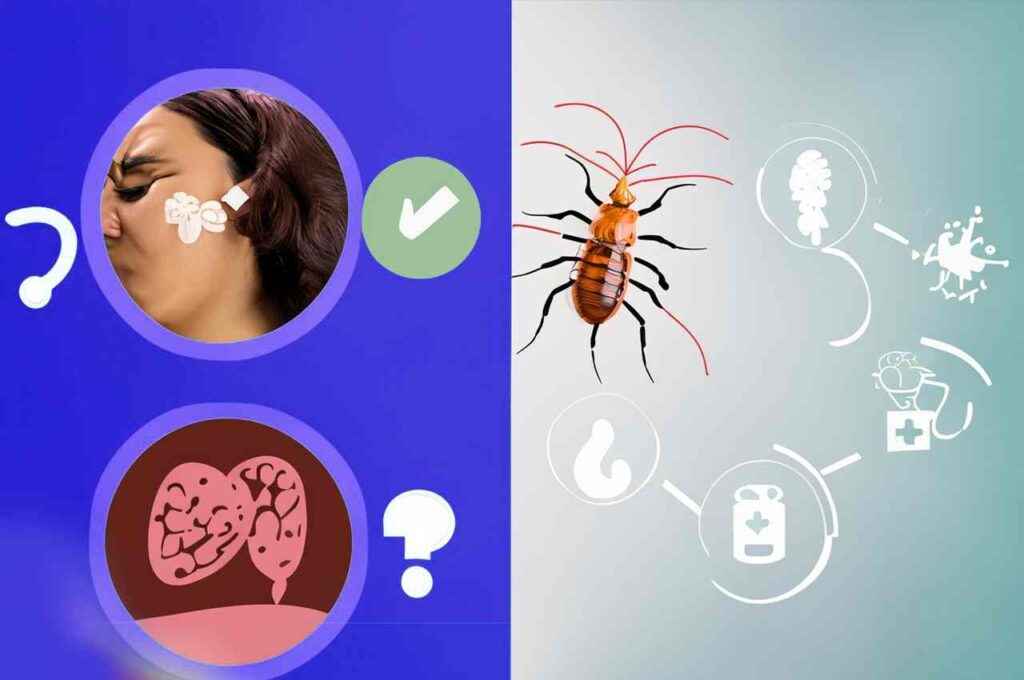
- Difficulty breathing
- Swelling of the face, lips or throat
- Dizziness, rapid heart rate, confusion
- Chest pain
- Symptoms that worsen or don’t improve with treatment
- Signs of wound infection from bites (redness, heat, pus)
Don’t discount extreme responses. Flare-ups of asthma and anaphylaxis may be fatal. Report any troubling symptoms to get the right diagnosis and treatment.
Locating a Reliable Termite Treatment Expert
Don’t fight termites by yourself. Join forces with a pest control business that puts effectiveness, safety, and superior service first. Search for:
- Becoming a member of pest management organizations (NPMA, SPMA, etc.)
- Professional development and ongoing education
- Strict observance of treatment guidelines
- Using integrated pest control (IPM) techniques
- Positive testimonials and ratings from previous customers
- Assurances of permanent eradication
You may breathe easier knowing that termites won’t threaten your health or property any more with the support of the competent pest specialist assisting to defend your house.
Tips to Prevent Termite Health Issues
| Method | Details |
|---|---|
| Professional treatment | Use IPM methods, proper PPE |
| Isolate area | Seal off with plastic sheeting |
| Ventilate | Open windows, use fans |
| Improve air quality | HEPA filters, dehumidifiers |
| Eliminate water sources | Repair leaks, improve drainage |
| Fill cracks | Caulk and seal entry points |
Conclusion
In conclusion, termites may affect health despite the fact that they do not carry diseases. Termites may cause allergic reactions, asthma triggers, poor indoor air quality, and stress. Being aware of termite health risks and taking precautions like frequent inspections, professional pest treatment, and cleanliness may lessen these risks. As with any pest, early detection and prevention are crucial to house and family safety.
Frequently Asked Questions
Is it dangerous to live in a house with termites?
Termites do not harm humans, yet living in a home with termites may be dangerous. These include structural damage from termites eating wood and building components, which may need costly repairs or relocation. Termites’ droppings and saliva may contaminate food, causing food sickness. Their activity also produces frass, a sawdust-like residue containing mold spores that may cause respiratory concerns for indoor air quality. Termites may also cause tension and anxiety, especially for homeowners worried about property condition.
How long can you live in a house with termites?
Termites offer concerns, thus living in a home with them is not advised. Termites harm structures, taint food, and pollute indoor air. The intensity of the infestation determines how long you may safely live in an infected residence. In small infestations, residing in the home for a few months may be OK. Larger infestations should be relocated immediately. Mud tubes, frass, winged termites swarming, and wood damage indicate termite infestation. If any of these symptoms are present, professional pest control inspection and action are necessary to protect the property and inhabitants.
Can termites kill you?
No, termites cannot kill people. They are nontoxic and do not transmit illnesses. While termites cannot harm you, their infestations may cause many problems. Termite saliva or droppings may cause sneezing to anaphylaxis. The presence of termites may worsen asthma attacks and lower indoor air quality because termites create frass, which may include mold spores. Termites may also cause tension and anxiety in homeowners who are already anxious about their house. Health and property damage from termite infestations need immediate expert action.
Can termites transmit diseases to humans?
Termites cannot spread illnesses to humans. In termite-infested houses, sensitive or allergic people may have health problems. Allergic responses to termite saliva or droppings may include sneezing, coughing, and wheezing. Extreme allergies may cause life-threatening anaphylaxis. Termite infestations may also cause asthma episodes. Termites create frass, a sawdust-like residue, when eating on wood, which may pollute indoor air. This frass may include mold spores, causing respiratory issues. Termites do not spread illnesses, although their infestations might worsen sensitive people’s health.
Are there any health risks associated with termite infestations?
While termites can not spread illnesses, termite infestations pose health dangers. Termite saliva or droppings may cause allergic responses including sneezing, coughing, and wheezing. Life-threatening anaphylaxis may result from severe allergic reactions. Termite infestations may worsen asthma and cause episodes. Termites create frass, a sawdust-like residue, during wood consumption, compromising indoor air quality. This frass may include mold spores, causing respiratory issues. Termites may also cause tension and anxiety, especially for property owners. Thus, termite infestations may worsen allergies, respiratory difficulties, and stress.
Can termite bites or contact lead to allergic reactions?
Although termites do not bite humans, their sensitizing protein may cause allergy responses in certain people. This protein may cause allergies in sensitive persons. Symptoms of such responses include sneezing, coughing, wheezing, redness, swelling, and skin rash of the eyes, nose, and throat, breathing problems, and, in extreme instances, anaphylaxis.
Do termites carry harmful bacteria or pathogens that can affect humans?
The germs and diseases carried by termites do not damage people. Their presence might indirectly cause health problems, especially allergic responses. Sneezing, coughing, and wheezing may result from termite saliva or dropping allergies. These allergies may cause life-threatening anaphylaxis. Termites may cause asthma episodes in asthmatics. Termite-produced frass, a sawdust-like particle containing mold spores, may also lower indoor air quality and cause respiratory issues. This is interesting since wood dust allergy sufferers may also find termite-affected homes uncomfortable. Thus, although termites may not transmit hazardous microorganisms, they might worsen health issues in sensitive people.
Can termites cause respiratory issues?
Yes, termites may cause respiratory and other health difficulties. Sneezing, coughing, and wheezing may occur in termite saliva or dropping allergy sufferers. Severe allergies may cause life-threatening anaphylaxis. Asthmatics may have asthma attacks from termites. Termites create frass, a sawdust-like waste containing mold spores that may pollute indoor air. Property damage from termites may also create tension and anxiety. If termites are detected, expert pest treatment is essential to avoid health risks.
Do termites have germs?
Most termites do not carry pathogens that may harm humans. Individuals allergic to termites may sneeze, cough, and wheeze when exposed to their droppings. Termite allergies may be fatal in rare cases. Termites may indirectly cause allergic reactions and asthma episodes in susceptible people. Their creation of frass, a sawdust-like particle that may contain mold spores and cause respiratory problems, may also lower indoor air quality. Due to termites, property condition worries may cause stress and worry. Termites do not spread pathogens, yet their presence might worsen health issues in certain people.
Can termites contaminate food or water and cause sickness?
Termites seldom directly pollute food or water, although their activities may. Food poisoning may result from termite-produced frass, a sawdust-like material containing mold spores. Termites may also damage food storage containers and water lines, letting pollutants in. Frass carrying mold spores, food storage container deterioration, and water pipe damage pollute water supplies.
Does termite poop make you sick?
The termite poop, called frass, do not directly harm people, but they may indirectly harm them, especially those with allergies. Frass may cause sneezing, coughing, and wheezing in termite allergy sufferers. This allergy may cause life-threatening anaphylaxis. For vulnerable people, termite frass may cause allergic responses, asthma attacks, and mold spore-related respiratory difficulties. Frame does not offer immediate hazards, but its affects on sensitive people in termite-infested areas need attention and expert care.
Can termite spray make you sick?
Without sufficient precaution, termite sprays might make you sick. These sprays kill termites, but their compounds may harm people if inhaled or ingested. Termite sprays may cause breathing troubles, skin irritation, eye pain, stomach upsets, and headaches.
How can I protect myself and my family from potential health risks caused by termites?
Follow these actions to protect your family against termite health risks: Clean and clutter-free homes deter termites, repair foundation and exterior wall cracks, seal window and door gaps with caulk or weather stripping, inspect for termites regardless of infestations, and treat for termites every few years, especially in termite-prone areas.
- How do termite mounds help regulate temperature? - 7 January 2024
- 10 Effective Termite Control Methods That Actually Work - 4 January 2024
- How Long Does It Take for a Termite Mound to Form? - 21 December 2023
